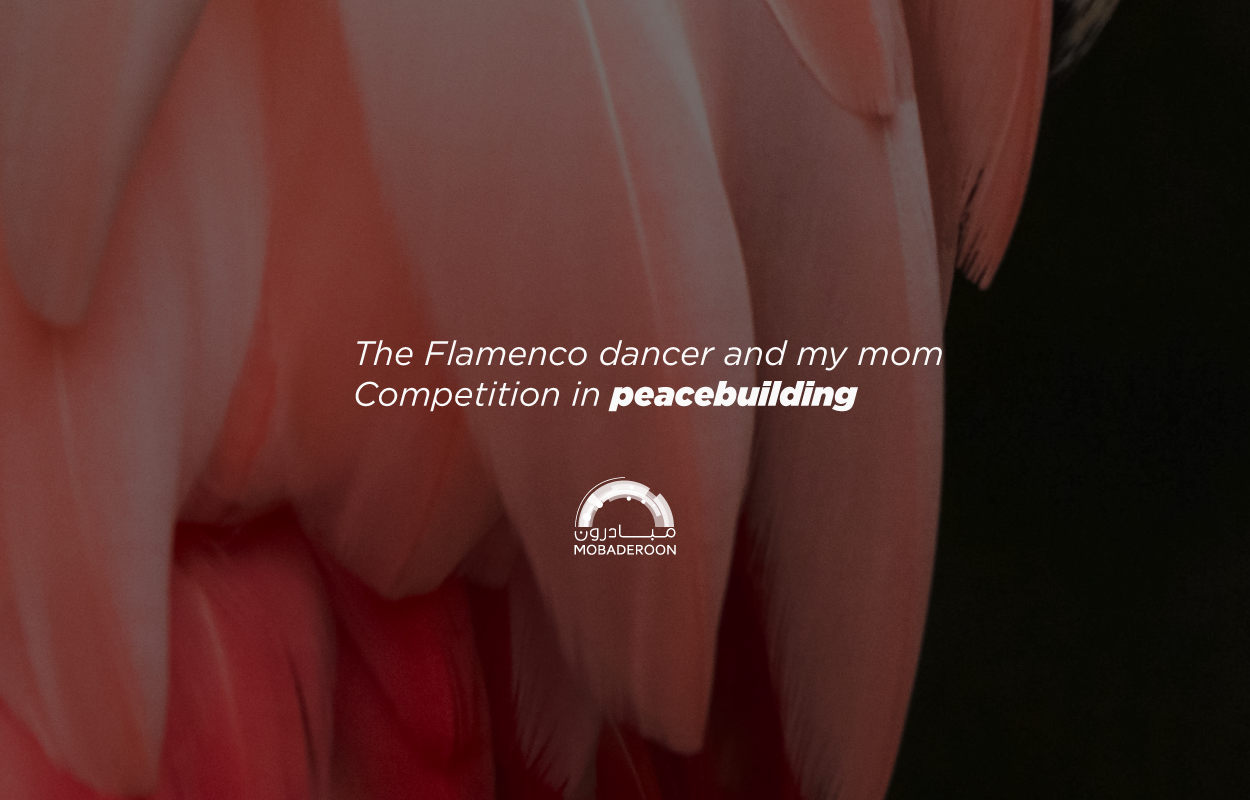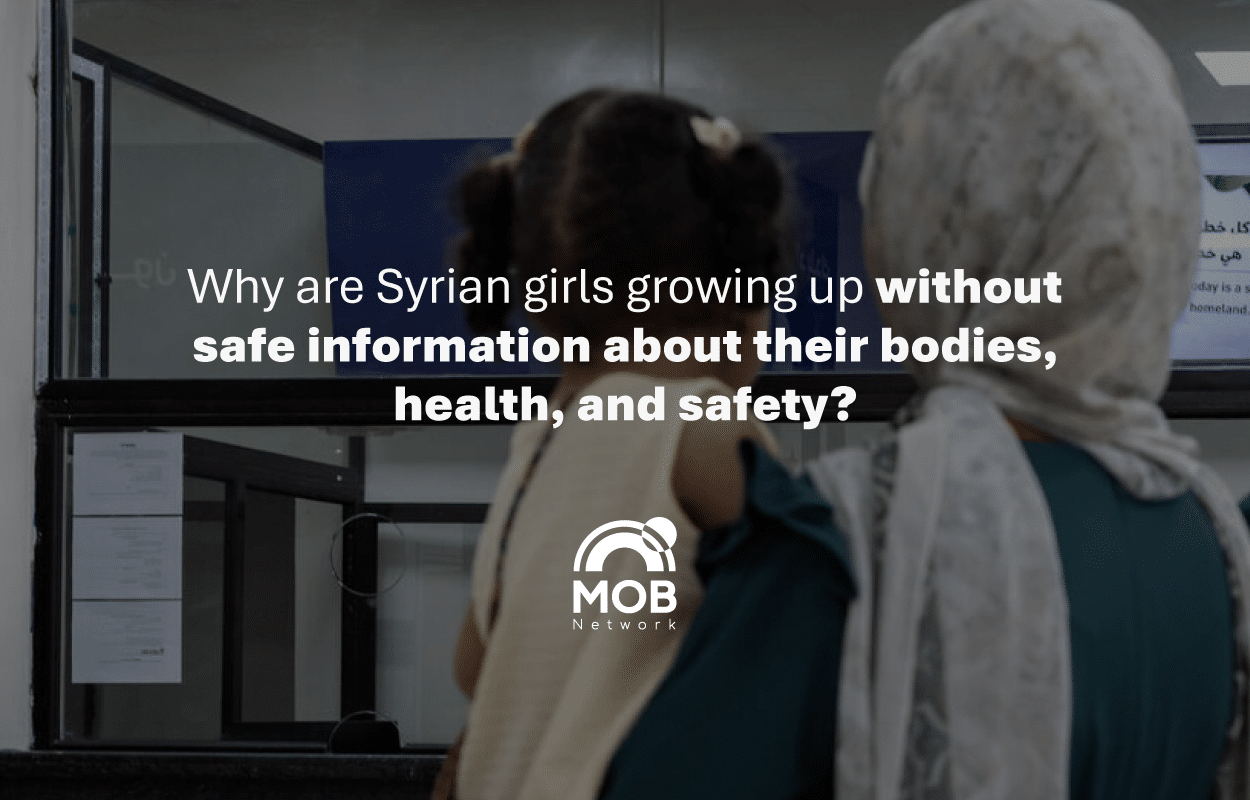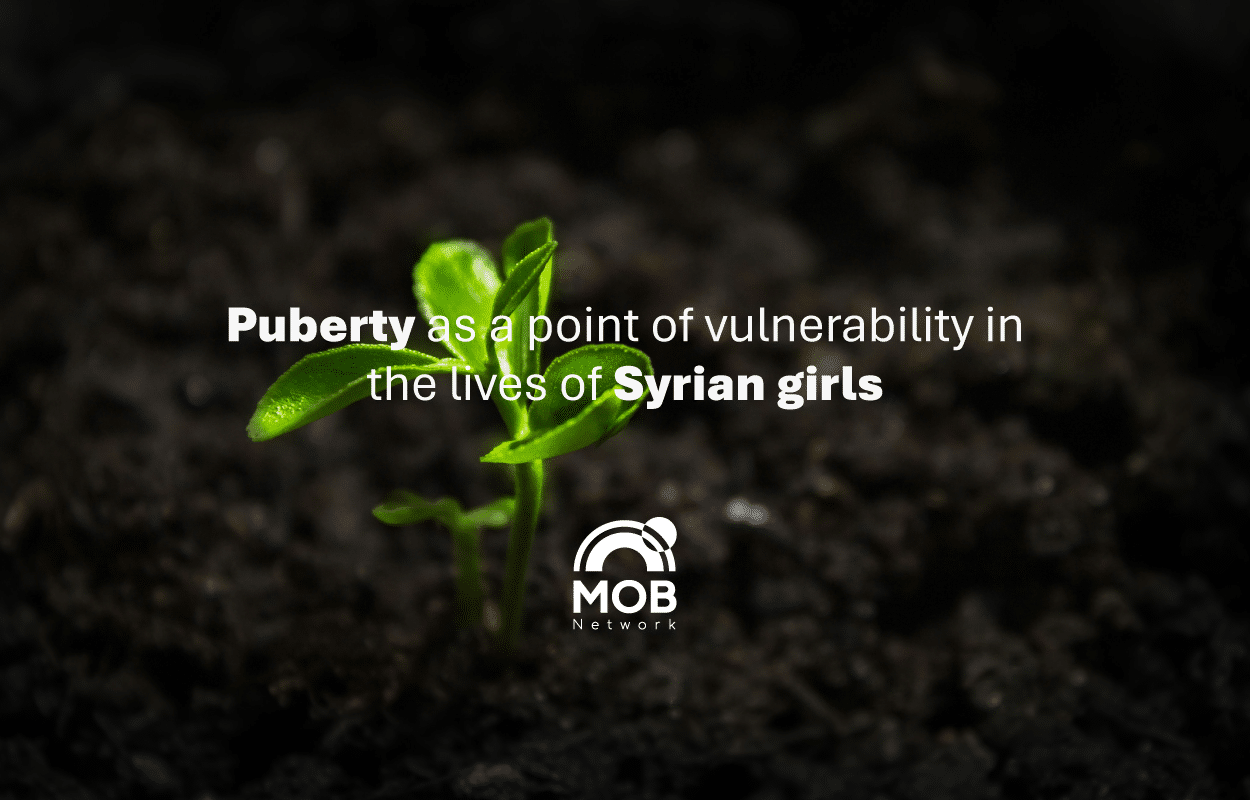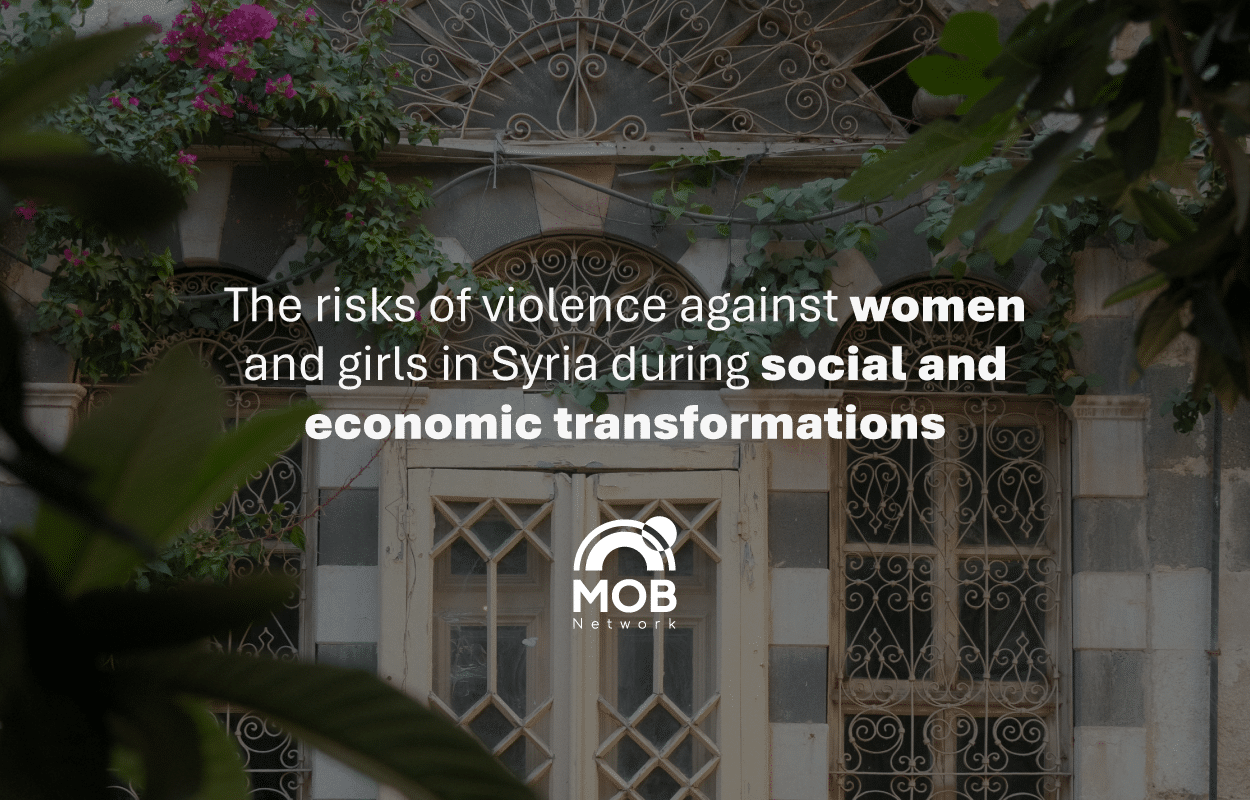Imagine with me that you are part of an audience in a large theater, all of you, men and women, gathered to watch a show by two women, each of whom came to say in her way: “Stop the war!”
Imagine at the beginning their mother standing in the middle of the stage, carrying on her back a sack filled with the tenderness of the world, looking into everyone’s eyes for a while, and focusing into yours, trying repeatedly to cry while delivering her inner monologue, but being patient to appear with the utmost strength and influence, trying with all the sparkle in her eyes to stop the war that made you migrate through a small boat in a huge sea. She waited for long days to know that you had reached your destination alive, and she is still waiting now to embrace and smell you. Then, she explains to you how she gathers the whole family every day, forming them with clay around the table. Then, divides the food among you, each according to what they like as the laughter and friendly quarrels burst forth among you loudly, and the scene dissolves with the lights being turned off and everyone sleeping in one room safely. Everyone’s calm breathing is accompanied by the heartbeat sound of the diesel fireplace, and the boiling water in the kettle above it, with the voice of the mother’s prayer, that happiness lasts.
The former emotional illusion is broken by the sound of powerful music and dazzling lighting, just before the entrance of a charming woman in a flowing dress and a large rose on the side of her head, and powerful gazes similar to the eyes of a prey eagle, strong shoes and fiery feet banging on the stage in a beautiful rhythm in harmony with the music. The flamenco dancer expresses her anger and pain from the war, stomping her foot, and tells the story of the woman who was imprisoned, then she stomps her other foot and tells the story of the mother whose children were captured, and the rural woman whose land was stolen, then wrapping her hands with fluidity and determination, making the poet weep, who found writing is a luxury fades in comparison with her brother’s death and the girl who left school to reduce the burden of expenses and fuel on her family.
The show is over!
all of you now with tight nerves, as if you will go out and switch off the “war button” in one moment!
What moved you the most? The mother’s affection, the strength of her softness, her sincere eyes, her true story? Or the flamenco dancer’s power, pride, and rejection of war and its effects?
Why can a woman’s influence be so strong on us, both men and women? Do we need them together, so that emotion gives way to logic, and they shake hands together and form the force to stop the war? Can women in our societies create societal change?
What do we want? Women leaders or Peace Building?
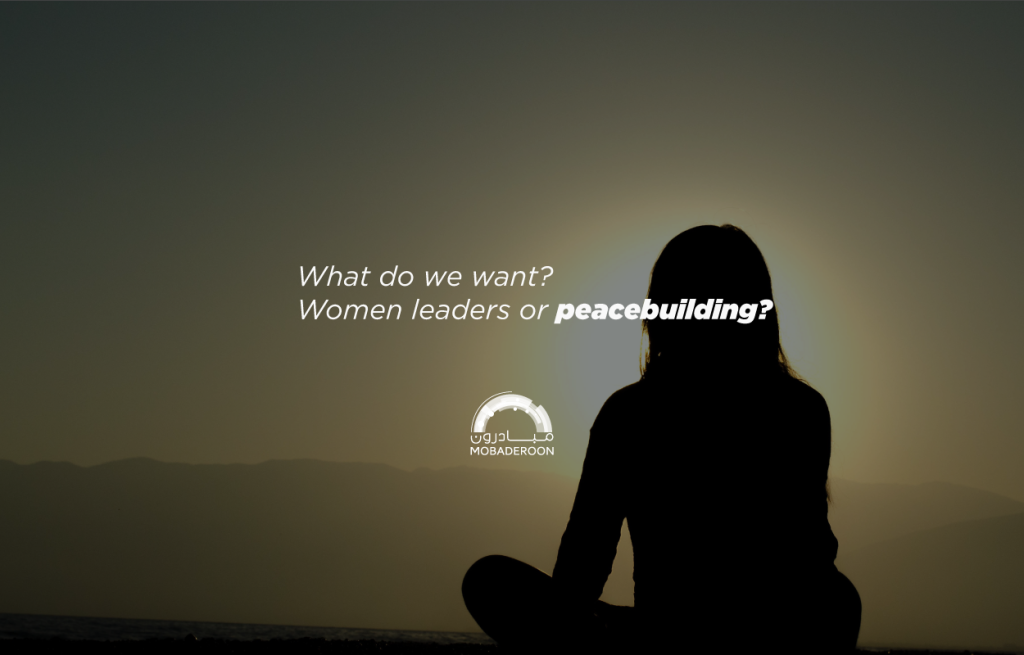
Leadership is the ability to influence individuals to make them want to accomplish the goals of the group, while peace has several definitions such as the absence of war, the absence of violence and evil, and achieving justice, or as a state of security and stability that prevails in the world and allows development and prosperity for all.
Is it possible to reach a state of peace without the ability to influence or make decisions?
Women leaders
When I searched this title, I saw many results such as: “These are the amazing results of women leaders in 19 countries led by women” or “International Women’s Day: Five Leaders Defenders of Human Rights.” Or, “The percentage of women ministers around the world has reached an unprecedented level, reaching 20%.” but I was thinking about the fact that we’re talking here on a world scale, and the mentioned numbers did not exceed twenty as a number or as a percentage!
However, these are numbers that show women in decision-making positions, but in reality, there are much larger numbers of women working on the ground, intentionally or unintentionally, in an attempt to build peace, “brick by brick.”
Peacebuilding and societal change with caution
In a short tour of some conflict zones and places affected by wars, we will meet women and girls who have struggled a lot to reduce conflicts or bring peace to their communities, In Yemen, for example, women have worked tirelessly to provide peace and stability for their communities. In addition to facilitating prisoner exchanges and opening humanitarian paths, they continue to mediate in local ceasefires and provide vital services to the local population. However, the essential contributions of Yemeni women to achieving peace on the ground did not give them a seat at the official negotiating table.
While the great role of many women in Syria, Lebanon, Palestine, Yemen, and other countries cannot be denied in mending the wounds caused by wars among the young generations or between the communities of women and girls through civil society associations and organizations with the support of the United Nations, through numerous awareness programs about violence, the importance of accepting the other, and helping to identify human rights in general and women and children rights in particular, as well as the importance of humanitarian work and the consolidation of civil peace and social justice, etc.
During our tour, we can also come across the survivor Iman Abbas, a young Yazidi woman who was held captive by ISIS before she survived and moved to defend the rights of other survivors of suffering in northern Iraq. Iman, 18, says, “I want to become a lawyer to gain experience in Iraqi and international law, so that I can defend the rights of Yazidi survivors And also the other victims of ISIS organization.” Iman is a legitimate peacebuilder, as she did not only think of her people, but rather she thought of helping all the victims, away from discrimination towards a particular group.
I will stop the search here, and go back to digging up my memory, where my grandmother stands in the depths of memory with a worried face and a shy smile, placing her brown hand with prominent veins on my uncle’s hand, and her other hand on my aunt’s hand, attempting for several days to convince them that their children are only children and that their disagreement should not affect “the blood of siblings, which should not become water.” My grandmother of thirteen children did several successful mediations before she knew what she was doing was called that. My grandmother passed away, but her children and grandchildren are still reminiscing and adopting her stands. My grandmother is also a peacebuilder.
The question is: Can the grandmother or any of the mentioned women stand up as Angela Merkel does, for example, and address world leaders?
There are still many dangers that women may face and put obstacles in their difficult paths, the least of which is the prejudices that women are exposed to regardless of their status on social media, and in the media, and the most being directly threatened, In addition to a sense of isolation noted by journalist Maggie Marble: “What does it mean to have only one woman in a conference room?”
The process of achieving peace is a participatory process that needs to empower women and men together to know their roles, rights, the balance of power, influence and prevent danger to all parties. Therefore, we need a lot of rehearsals on the ground to be performed by everyone without exception, many women and men, until we reach a theatrical performance that is not limited to one flamenco dancer and one mother, Rather, many, many women, fathers, young men and women, the elderly, children and grandmothers.

